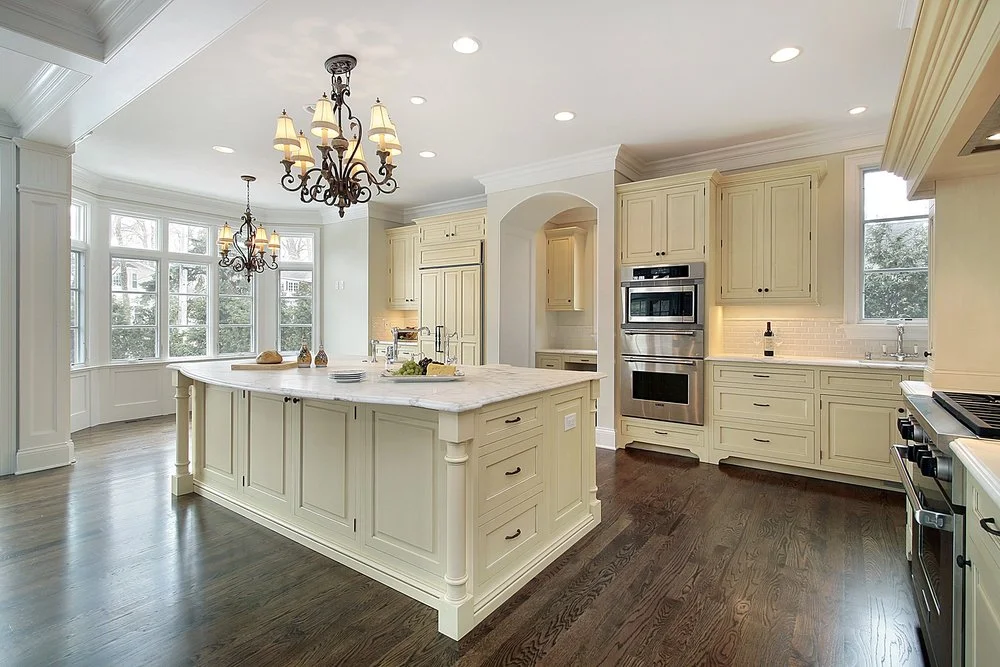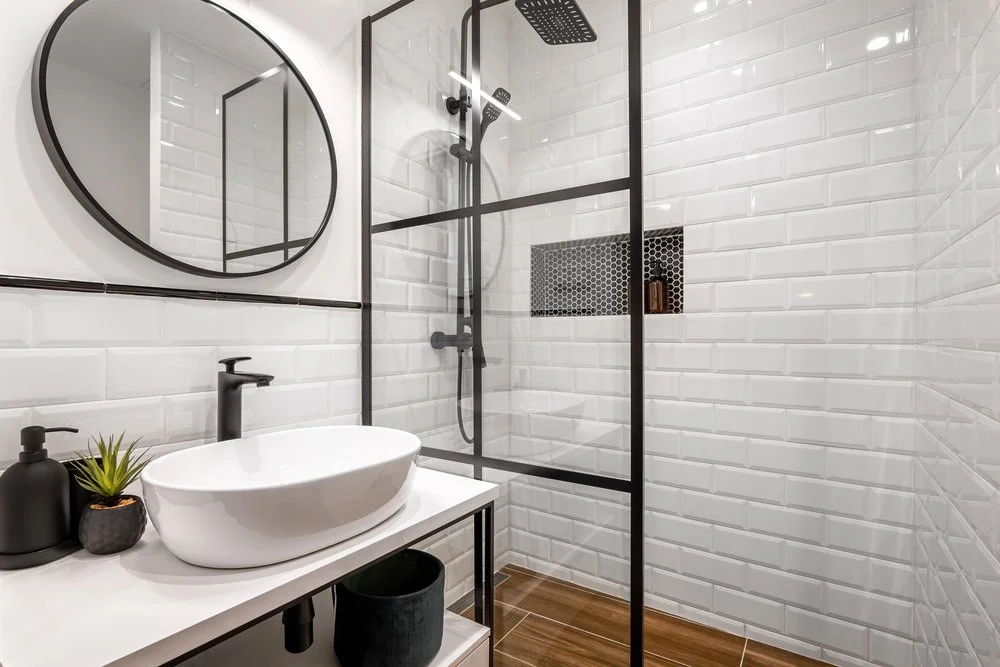Truths Your Contractor Won't Tell You
/With all of the horror stories you hear on some renovation shows, you would think that all renovation contractors are evil and out to get you. But the reality is, most are honest, hardworking, and just want to earn an honest paycheque! At Multi Trade Building Services, it’s important for us to educate our clients and let them know how to have successful and stress-free renovations. There are some things, however, that are difficult conversations to have. In this blog post, I’m going to be brutally honest and tell you about some of the things that contractors won’t talk to you about but wish they could.
Prefer to listen?
They prefer to use their own employees or sub trades
We were working on a kitchen renovation for a client, and everything was going great! Part way through, the homeowner came to me and said, "My nephew is a plumbing apprentice, and he said he could do the plumbing for my project on the side. I’d like him to do the plumbing for this job".
It was a nightmare! Not only did he hold up the job because he was only doing the work in the evening and weekends, but he really didn’t know what he was doing and wasn’t doing the work to code. In the end, the client had to pay us to undo what her nephew did and pay us to re-do it properly.
A contractor’s best asset is his employees and subcontractors. Most contractors have spent many years finding just the right people to work with. When you hire a contractor, most of what you are paying for are his years of experience and knowledge. By asking your contractor to work with people other than his usual crew, you are expecting him to work with people he has no established relationship with, and you’re doing yourself a disservice by not taking advantage of a group of workers your contractor knows can get the job done.
They hate re-using your old stuff
All contractors recognize that you want to save money wherever you can, but wanting to reuse your old door instead of starting with a brand new pre-hung door will cost you more in labour.
A frequently asked question is whether to reuse the old kitchen cabinets and just replace the doors and drawer fronts. Although your base cabinets might seem to be in good condition now, it could be that they only have another 5 years of life left. You’ve now put brand new doors on old cabinets that might need replacing in five years. Plus, if you’re changing the colour of the cabinets, you will have to re-band all of the cabinet shells and put on new gable ends. That’s expensive, only to have to replace it in 5 years.
Especially when it comes to kitchen cabinets, the most expensive part of a kitchen is the doors and drawer fronts. The shells or cabinets themselves are the cheapest and easiest part to manufacture. Don’t just put a cosmetic fix on your kitchen cabinets (unless you are planning to move within a year). As the saying goes, You can put lipstick on a pig, but it’s still a pig.
They are not trying to make extra work!
Although some unsavoury contractors may actually do this, most honest contractors will not underbid a project in order to get the job and then hit you with tons of extras once they are in. At Multi Trade Building Services, we often have change orders when we are doing a renovation project. However, it’s usually because we have opened up a wall and found issues inside or a client has asked for some additional work to be done while we are on site.
Most honest contractors don’t really like to have too many change orders once they start the job. A certain amount of time has been allocated to the project, and every change order adds time to the project, which delays the next job from starting.
When you are given a quote that’s lower than the contractor you would prefer to work with, review it carefully. Are there things not included in one that are in the other? Is one contractor including the cost for the fixtures, tile, paint, etc. that the other one isn’t? These could be red flags that mean, in the end, you could be paying considerably more with the supposed "cheaper" contractor.
Good contractors don’t want to do things illegally
We frequently get asked to do cash deals and do the work without a permit. We walk away from those people!
We recently met with a potential client who wanted to have us quote on removing a load-bearing wall and renovating his kitchen. We told him architectural drawings and a building and electrical permit were required. His response to me was, "Oh no, I don’t need any of that! I just want the work done!" We learned he wanted to cut corners, not put an outlet in the island, and not meet the Electrical Code requirements for the number of receptacles along the perimeter of the kitchen. He also knew how much the drawings were going to cost and didn’t want to have to pay $2500 for them. He said he wanted us to do the work properly but just didn’t want to pay unnecessary funds to do it. We promptly thanked him for the opportunity but told him that we didn’t feel this relationship was the right fit for both parties.
You take big chances when you cut corners, and if you talk with a contractor who’s willing to work without permits or drawings when they are required, you need to run. Quickly. Now! Not only is it a safety risk, but if something were to happen and your insurance company found out you did the work illegally, you wouldn’t get any coverage for the incident.
Their fees are not negotiable
Yes, your contractor will include a profit margin on your job. But if you think that the profit margin goes to buying big boats, expensive vacations, and fancy cars, you’re wrong! Only a portion of that profit is his or her personal income. That profit margin pays for business expenses or labour burdens, which include things like liability insurance, licensing fees, administrative costs, etc.
Do not try to negotiate down the price of your renovation. It’s one of the things that will put us off working with a client! If you need to get the cost of your renovation project down, then talk to your contractor and tell him that. There are often ways to save money on a project, such as doing the demolition yourself or hauling away the garbage to the dump yourself instead of paying the contractor to do it. For more ideas on how to save money during your renovation, read our blog post on it here.
Tell your contractor about deficiencies before the job is complete
No one wants to be a bother and complain about something that isn’t quite right, but honest contractors with integrity will want to know when something hasn’t been done to your satisfaction. They want to leave your job site knowing you are a satisfied client.
Now don’t hit your contractor with a list of problems every day they are on site! Give them a chance to finish the job first. Once you see that the job is close to completion, put together a punch list of deficiencies or items you deem not complete to your satisfaction. Present the list to your contractor in a polite and civil way. This will give him an opportunity to correct the problems while there are still workers on site.
It’s best if you stay out of the way
Now, I’m not suggesting that you should move out of the house and not come back until your renovation is complete. However, it’s best if you check in with your contractor at the beginning and end of the day but stay out of the way while the crew is on site working.
We had one client who brought a chair into whatever room we were working in, sat down, and watched us work the entire time. If we had to move to another area, he would follow us everywhere. Not only was this intimidating to our crew, but it was counterproductive. We were paying so much attention to our client that we weren’t focused on the job. We finally had to talk to him about it. It turns out he was retired, just bored, and was watching us to learn some skills. So, we made a compromise. We invited him to our next two training workshops so he could learn some skills. He left our crew alone from that point on, and everything went smoothly.
Contractors will never ask you to leave the house or not follow them around, but put yourself in their position. How would you feel if your boss stood over your shoulder all day while you worked? You’d be a nervous wreck and probably make more mistakes. The same holds true on job sites.
Your contractor can’t do freebies just because you’ve reached the end of your budget
We hear this often! Our clients, despite our constant reminders, never left a contingency in their budget. Now they’ve bought high-end appliances, found a gorgeous $40 per square foot backsplash tile they love, and the inevitable happens! There are issues inside the walls, and now there’s going to be a $900 change order that they have no money to pay for.
We had this exact situation happen with one client. She was crying the blues to us about how much this renovation was costing her in extras. She lived in a century-old home, and there were tons of deficiencies that were found in the electrical and plumbing once we started the project. She tried to get us to bring our pricing down to correct the deficiencies. Then her appliances were delivered, which she asked us to sign for when she was at work. She bought a $14,000 stove and was still trying to get us to cut our price on a $900 invoice to make her home electrically safe!
You need to ensure that you budget your money wisely when it comes to renovations. You can’t expect your contractor to cut his costs because you ran out of money!
The best advice I can give about dealing with a contractor is to treat them with respect. When you treat workers well, they will reciprocate in turn. When we’ve had a client who has been mean, rude, and demeaning (we even had one client who wouldn’t let us use their washroom and suggested we should just go behind the shed to relieve ourselves!), we can’t wait to get off the job site. We won’t go out of our way to be polite and helpful. We just want the job over and to get out!
Being civil, offering a glass of water or cup of coffee, and making polite conversation with your workers go a long way to making them want to do the best job they can for you and even do a few extra little things along the way. Our workers have even brought in recycle boxes, taken the client’s garbage to the curb, and offered to do little extras when they’ve been treated well on site. Follow the golden rule, and you’ll have the happiest and best renovation team working for you!























